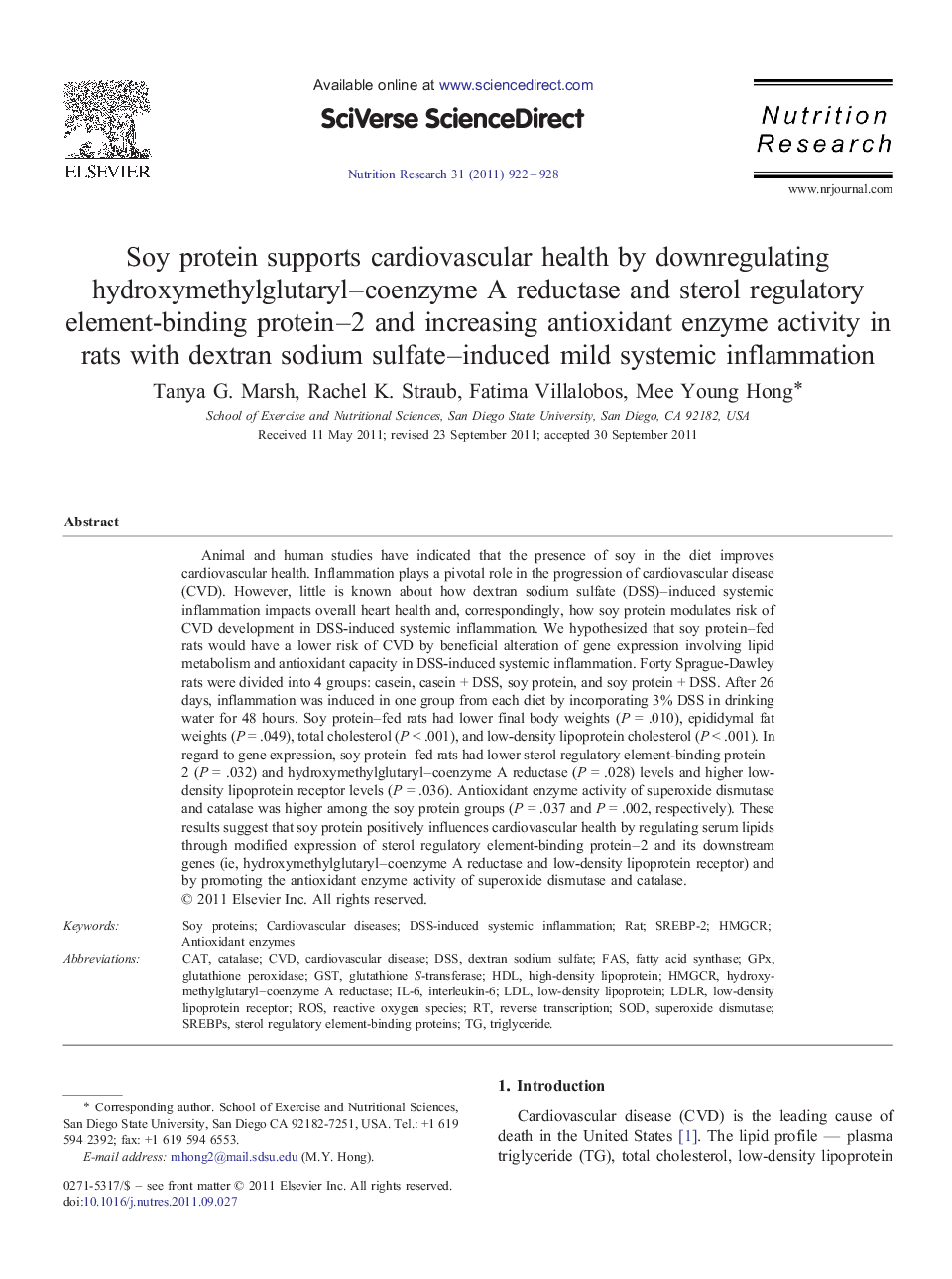| کد مقاله | کد نشریه | سال انتشار | مقاله انگلیسی | نسخه تمام متن |
|---|---|---|---|---|
| 5904646 | 1158050 | 2011 | 7 صفحه PDF | دانلود رایگان |

Animal and human studies have indicated that the presence of soy in the diet improves cardiovascular health. Inflammation plays a pivotal role in the progression of cardiovascular disease (CVD). However, little is known about how dextran sodium sulfate (DSS)-induced systemic inflammation impacts overall heart health and, correspondingly, how soy protein modulates risk of CVD development in DSS-induced systemic inflammation. We hypothesized that soy protein-fed rats would have a lower risk of CVD by beneficial alteration of gene expression involving lipid metabolism and antioxidant capacity in DSS-induced systemic inflammation. Forty Sprague-Dawley rats were divided into 4 groups: casein, casein + DSS, soy protein, and soy protein + DSS. After 26 days, inflammation was induced in one group from each diet by incorporating 3% DSS in drinking water for 48 hours. Soy protein-fed rats had lower final body weights (P = .010), epididymal fat weights (P = .049), total cholesterol (P < .001), and low-density lipoprotein cholesterol (P < .001). In regard to gene expression, soy protein-fed rats had lower sterol regulatory element-binding protein-2 (P = .032) and hydroxymethylglutaryl-coenzyme A reductase (P = .028) levels and higher low-density lipoprotein receptor levels (P = .036). Antioxidant enzyme activity of superoxide dismutase and catalase was higher among the soy protein groups (P = .037 and P = .002, respectively). These results suggest that soy protein positively influences cardiovascular health by regulating serum lipids through modified expression of sterol regulatory element-binding protein-2 and its downstream genes (ie, hydroxymethylglutaryl-coenzyme A reductase and low-density lipoprotein receptor) and by promoting the antioxidant enzyme activity of superoxide dismutase and catalase.
Journal: Nutrition Research - Volume 31, Issue 12, December 2011, Pages 922-928